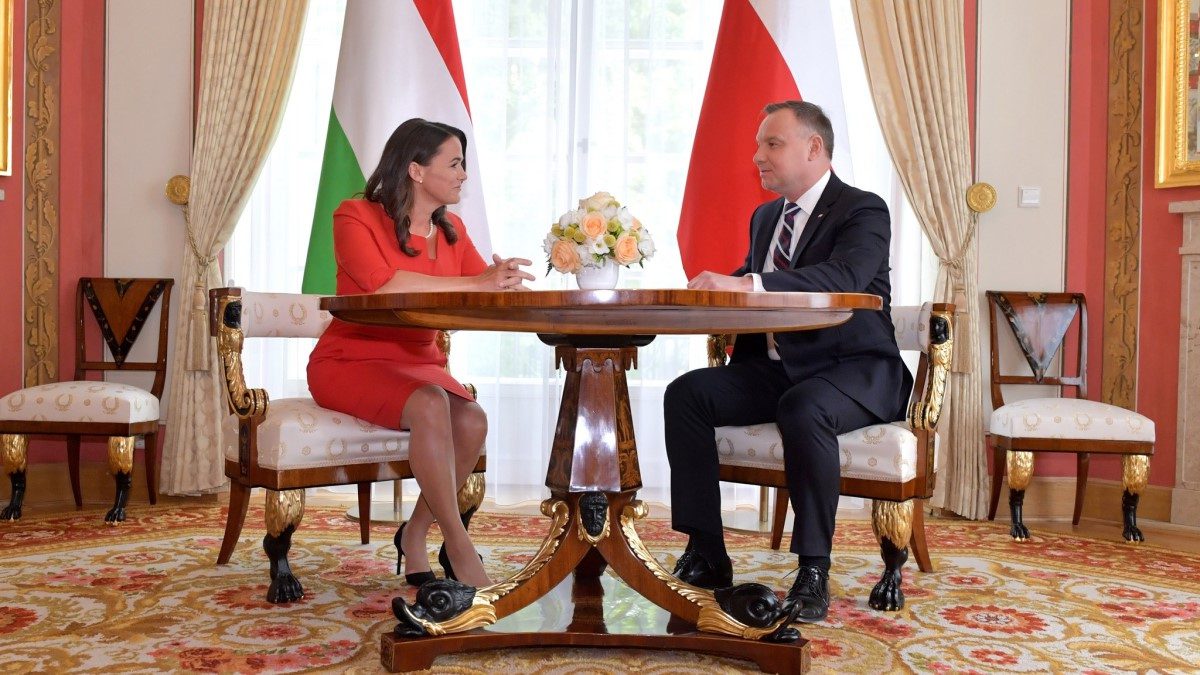
Since the beginning of the conflict between Russia and Ukraine, relations between Poland and Hungary, although usually excellent, have deteriorated considerably. The new Hungarian President Katalin Novák, in office since the beginning of May, was keen to make an official visit to Warsaw in an attempt to resolve the misunderstandings that have built up over the past few months.
The two countries have chosen two radically different strategies towards Ukraine. Poland quickly appeared to be the first country to support the beleaguered Ukraine, notably by opening its borders to Ukrainian refugees, in keeping with its historical tradition of opposition to Russia. Hungary, on the other hand, preferred to play the card of moderation and the defence of Hungarian national interests—a delicate line to hold, as international political and media pressure pushes states to show unrestricted hostility towards Russia.
In this tense context, the previous Hungarian President János Áder was due to visit Poland on March 23rd to inaugurate a monument to Polish-Hungarian friendship with his Polish counterpart Andrzej Duda, but the trip was cancelled.
The new Hungarian President Katalin Novák took the initiative and announced in her inaugural speech on May 14th that her first foreign trip would be to Poland. This gesture was warmly welcomed by President Duda.
During their meeting, the two presidents were keen to reaffirm their common political project based on the same civilisational values: “I can say without hesitation that we are people who come from a world of similar values, similar ideals. We will probably pursue a similar policy in our countries,” said Andrzej Duda.
The conversation naturally focused on the management of the Russian-Ukrainian war. President Duda was forced to admit that things were not the same for Hungary and Poland: “I have to admit that … the situation in Poland is in some ways politically much simpler than the situation in Hungary. Hungary’s ties with Russia—including those of a fundamental nature for the Hungarian economy—are very strong and very difficult to change quickly,” he acknowledged.
Duda and Novak agreed that responsibility for the deadlock rested squarely on the EU. The conversion of the Hungarian economy away from dependence on Russia requires major investments that are not possible as long as the EU continues to withdraw its support funds from the Budapest government. Poland has just as much to suffer from the political choices made in Brussels.
Katalin Novak’s trip to Warsaw has led to a resumption of more peaceful diplomatic relations between Poland and Hungary.
